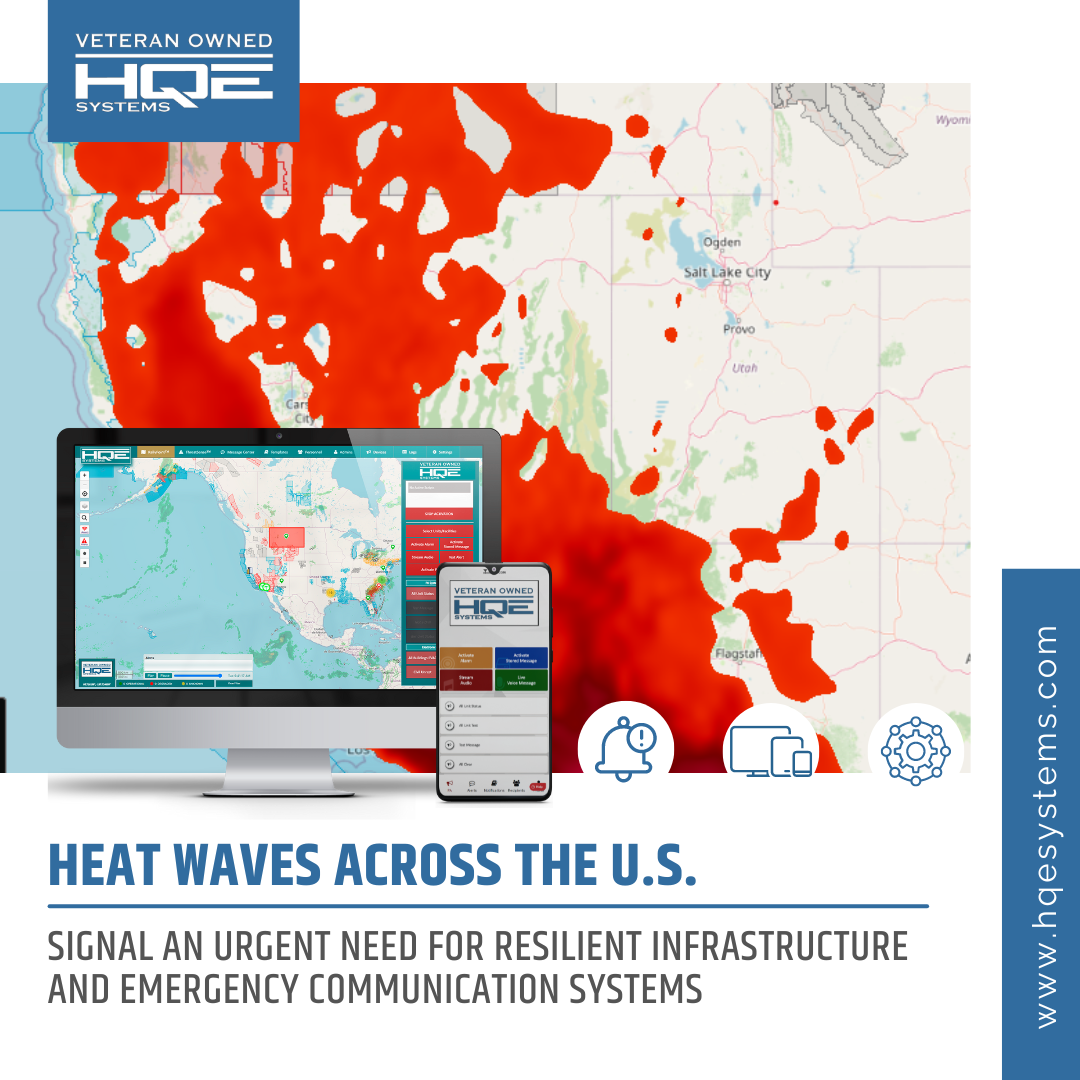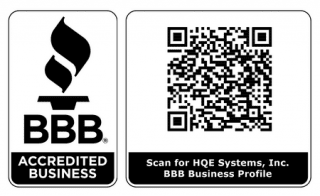Heat Waves Across the U.S. Signal Urgent Need for Resilient Infrastructure and Emergency Communication Systems
Unprecedented Heat Waves Call for Enhanced Emergency Communication Strategies
The summer of 2024 has brought record-breaking heat waves across the U.S., impacting over 100 million people with extreme temperatures. From the West to the East Coast, cities like Washington, D.C., and New York have experienced unprecedented heat, pushing local infrastructure, healthcare, and emergency services to their limits. These prolonged heat waves emphasize the critical need for improved infrastructure and emergency communication systems that can withstand the intensifying challenges of extreme weather.
According to ABC News, more than 100 million Americans were under heat alerts as temperatures surged across various states, including California, Nevada, Colorado, and Louisiana. These heat waves, which are becoming more frequent, pose not only a public health risk but also strain power grids, transportation systems, and other vital infrastructure.
Urban Areas at Risk: The Heat Island Effect in Major Cities
In urban centers, the heat island effect plays a significant role in amplifying the intensity of heat waves. This phenomenon occurs when materials like asphalt, concrete, and steel absorb heat throughout the day and release it slowly at night, causing cities to remain significantly hotter than rural areas. Major urban hubs such as Washington, D.C., and New York City have experienced unprecedented heat, which puts both residents and infrastructure at risk.
Axios reported that these urban heat islands exacerbate the severity of heat waves, making residents even more vulnerable to the effects of extreme temperatures. For example, in New York, a heat index of up to 100°F was expected during the summer of 2024, while parts of New Jersey saw heat indexes reaching 111°F. These temperatures place additional strain on healthcare systems, as hospitals see a sharp increase in cases of heat-related illnesses.
The combination of the heat island effect and rising global temperatures has made cities particularly vulnerable during heat waves. Public transportation systems have faced significant disruptions, as tracks overheat and become dangerous to use. In Washington, D.C., train delays and cancellations have left commuters stranded, while the city’s emergency services have struggled to respond quickly to the surge in heat-related health emergencies.
Cooling Centers and Infrastructure Strain
Cooling centers, designed to provide relief to residents without air conditioning, have become vital in many cities. In New York and other major urban areas, these centers are often overcrowded during heat waves, making it difficult to accommodate everyone in need. The scale of the problem requires more than just short-term solutions; there is a pressing need for improved urban planning and infrastructure to address these growing challenges.
In addition to overcrowded cooling centers, the strain on power grids during heat waves has become increasingly severe. In regions like California, where rolling blackouts have been implemented to manage electricity demand, the risk to public health rises as residents are left without air conditioning during extreme heat. As highlighted by Axios, the long-lasting heat wave in the West put immense pressure on energy systems, with Phoenix and Las Vegas experiencing temperatures above 115°F for several consecutive days.
Healthcare facilities are also stretched thin, with hospitals overwhelmed by patients suffering from heat-related illnesses. In cities like Phoenix, New Orleans, and New York, emergency rooms have reported a significant increase in cases of heat stroke, dehydration, and heat exhaustion. Vulnerable populations, including the elderly and individuals with pre-existing health conditions, are particularly at risk.
The West Faces a Double Crisis: Heat Waves and Wildfires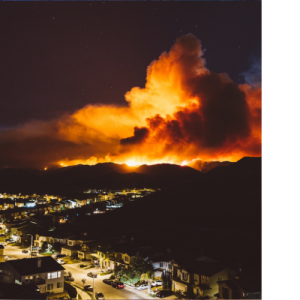
While the East Coast grapples with the effects of the urban heat island, the West faces a dual threat: record-breaking heat waves and wildfires. Cities such as Los Angeles, Phoenix, and Las Vegas have seen temperatures rise above 115°F, contributing to the rapid spread of wildfires. As vegetation dries out, the risk of wildfires increases, and the 2024 heat wave has accelerated the fire season, resulting in devastating wildfires across multiple states.
According to Axios, the Western U.S. has been hit hard by this confluence of extreme heat and wildfires, straining emergency services as firefighters battle both the flames and the sweltering temperatures. In Phoenix, the heat wave set a record, with temperatures exceeding 115°F for several consecutive days. Firefighters in the region have faced unprecedented challenges, not only battling dangerous flames but also coping with the health risks posed by the intense heat.
The combination of wildfires and extreme heat has had a cascading effect on public health, infrastructure, and emergency response systems. Smoke from the fires has spread across the West, reducing air quality and leading to respiratory issues for millions of residents. The fires have also disrupted power supplies, caused widespread damage to homes and businesses, and strained resources across the affected states.
Impact of Wildfires and Heat on Public Health
The public health impacts of the 2024 heat waves and wildfires have been far-reaching. Smoke and poor air quality from wildfires have traveled hundreds of miles, affecting cities well beyond the immediate fire zones. In addition to respiratory issues caused by the smoke, hospitals have been inundated with patients suffering from heat-related illnesses. USA Today reported that the prolonged heat wave has been tied to at least 30 fatalities in the West.
In areas like New Orleans and Phoenix, where temperatures have reached as high as 110°F, healthcare facilities are struggling to manage the influx of heat-related cases. Heat stroke, dehydration, and heat exhaustion have become common diagnoses, particularly among the elderly and those without access to adequate cooling systems. Cooling centers have provided temporary relief, but they are often overcrowded, and in some areas, there is not enough space to accommodate all those in need.
For vulnerable populations, including children, the elderly, and individuals with chronic health conditions, the combination of extreme heat and poor air quality poses a significant risk. Municipalities are increasingly recognizing the need for more robust emergency response systems to address the growing threat of heat waves.
How HQE Systems Can Help Mitigate Heat Wave Risks
As heat waves become more frequent and severe, the need for effective communication systems is more critical than ever. HQE Systems offers advanced solutions designed to help communities navigate extreme weather events such as heat waves. As a veteran-owned company specializing in mass notifications and life safety solutions, HQE ensures that residents receive real-time information during emergencies, providing them with critical updates on how to stay safe during periods of extreme heat.
HQE’s mass notification system leverages multiple communication methods, including SMS alerts, automated phone calls, social media updates, and geo-targeted notifications. This multi-modal approach guarantees that critical information, such as the locations of cooling centers or updated heat advisories, reaches as many people as possible in the shortest amount of time.
SMS and Mobile Alerts for Rapid Communication
One of the key components of HQE’s mass notification system is the ability to send real-time SMS alerts to residents’ phones. Government agencies and emergency management departments can use this system to inform the public about heat wave risks, nearby cooling centers, water distribution points, and other critical resources. The system’s geo-targeting capabilities also allow authorities to tailor these alerts to reach the most affected neighborhoods, ensuring that resources are distributed effectively.
During heat waves, rapid communication is essential, particularly for vulnerable populations. HQE’s SMS alert system provides an efficient and reliable way to notify residents of emergency information. For many, receiving an alert about a nearby cooling center or water distribution point can be life-saving.
Automated Voice Calls for Those Without Mobile Access
In addition to SMS alerts, HQE’s mass notification system offers automated voice calls to ensure that those without access to smartphones are not left out. These voice calls provide critical information about emergency resources and advisories, making sure that older residents and those without mobile devices receive the necessary updates. This feature is particularly important for elderly populations, who are often most vulnerable during heat waves but may not be as tech-savvy as younger generations.
By combining SMS alerts and automated voice calls, HQE’s system ensures that the entire population is covered, regardless of their access to modern technology. This inclusive approach to communication is critical in safeguarding all members of the community during extreme weather events.
Public Digital Displays for Real-Time Information
HQE Systems also integrates its mass notification system with public digital displays located in transit stations, bus stops, and other high-traffic areas. These displays provide real-time information on heat advisories, cooling center locations, and other emergency resources. Public digital displays are particularly effective in reaching those without mobile phones or internet access, ensuring that they are kept informed during critical situations.
By incorporating multiple methods of communication, HQE’s system ensures that every resident, regardless of their access to technology, receives the necessary information to stay safe during heat waves.
Emergency Response Integration: Coordinating Resources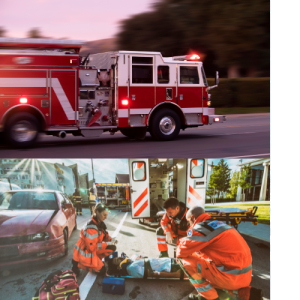
A key advantage of HQE’s mass notification system is its seamless integration with local emergency response services. By connecting public safety agencies, hospitals, and other critical organizations, HQE helps coordinate resources during heat wave emergencies. This ensures that emergency responders can react quickly and efficiently, deploying resources where they are needed most.
For example, during the heat waves of 2024, HQE’s system could have streamlined the communication between public safety agencies, hospitals, and cooling centers, allowing for a more efficient response. By ensuring that all emergency services are on the same page, HQE helps mitigate the impact of heat waves and reduces the strain on local resources.
Building Resilient Communities with HQE Systems
Resilience to heat waves begins with preparation, and HQE Systems is at the forefront of helping cities and municipalities prepare for the growing challenges of extreme weather events. By providing real-time communication tools and multi-modal alerts, HQE helps ensure that residents stay informed and connected during heat waves. Whether through SMS alerts, voice calls, or public displays, HQE’s systems are designed to protect communities by keeping them updated with life-saving information.
HQE Systems works closely with local governments to customize its mass notification solutions, tailoring them to the specific needs of each community. This includes integrating language support to ensure that non-English speakers receive critical information in their preferred language, further enhancing the inclusivity of the system.
In an era where extreme weather events are becoming more frequent and severe, the need for effective communication and resilient infrastructure is more important than ever. With HQE’s advanced mass notification systems, cities can better prepare for heat waves and other natural disasters, ensuring that residents remain safe and informed.
Conclusion: A Call to Action for Emergency Preparedness
The record-breaking heat waves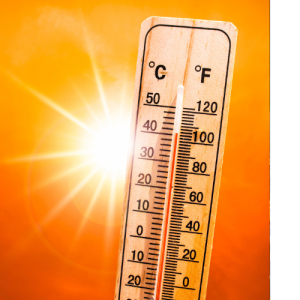 of 2024 have exposed significant vulnerabilities in the nation’s infrastructure and emergency communication systems. As temperatures continue to rise and weather patterns become more unpredictable, it is crucial for cities to invest in resilient systems that can withstand the pressures of extreme heat.
of 2024 have exposed significant vulnerabilities in the nation’s infrastructure and emergency communication systems. As temperatures continue to rise and weather patterns become more unpredictable, it is crucial for cities to invest in resilient systems that can withstand the pressures of extreme heat.
HQE Systems offers a comprehensive solution to these challenges, providing multi-modal communication tools that ensure residents receive timely and accurate information during heat waves. By investing in HQE’s mass notification systems, cities can protect their residents, reduce the strain on local resources, and build resilience for the future.
As the nation continues to face the impacts of extreme weather, now is the time for local governments to take proactive steps in preparing their communities. HQE Systems stands ready to support these efforts, providing the tools and expertise needed to navigate the challenges of the 21st century.
HQE Systems is a certified Veteran Owned Company. For more information about HQE Systems Inc. and its emergency management, electronic security, and integration solutions, please visit www.hqesystems.com.

Contact: David Ditto (Early Warning Systems Subject Matter Expert)
Email: David.Ditto@hqesystems.com
Phone Number: (843) 872-7020
____________________
HQE Systems, Inc. | HQE is a Minority-Owned Service Disabled Veteran Owned Small Business (SDVOSB) providing full solutions for: Mass Notification Systems, Electronic Security Systems, Software Development Services, Contract Support, and Prototyping Services. As a brand-agnostic solutions provider, HQE prides itself in providing the BEST solution for the project. HQE possesses over 30+ factory certifications and reseller licenses to ensure our clients receive the highest quality service at the ideal budget. HQE can provide full design, installation, integrations, upgrades, and long-term maintenance support for any size and scope project.

